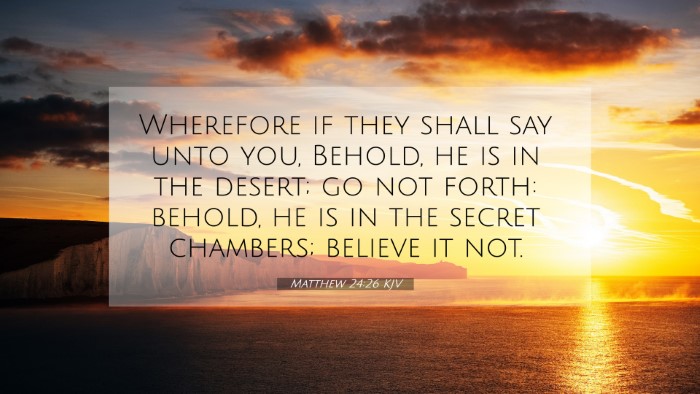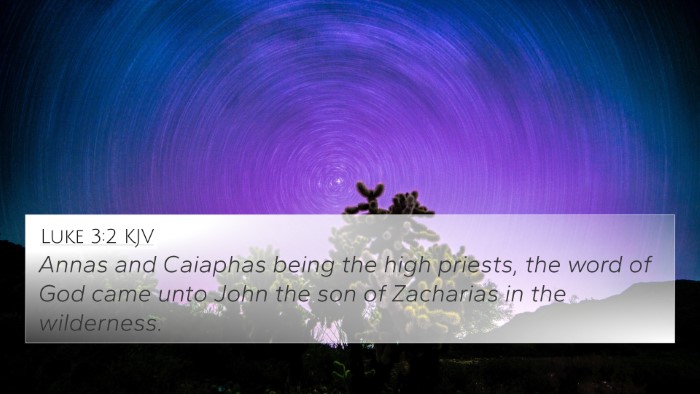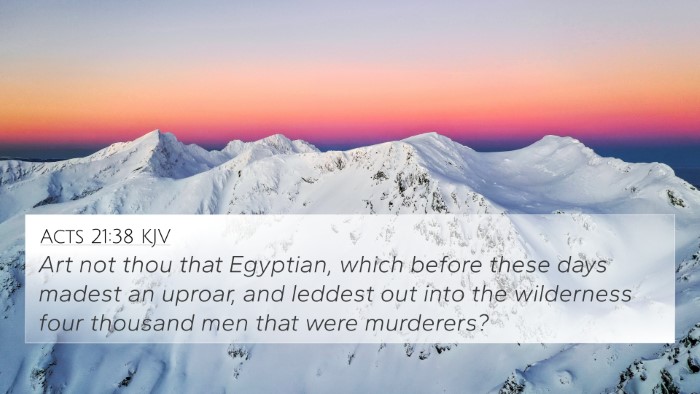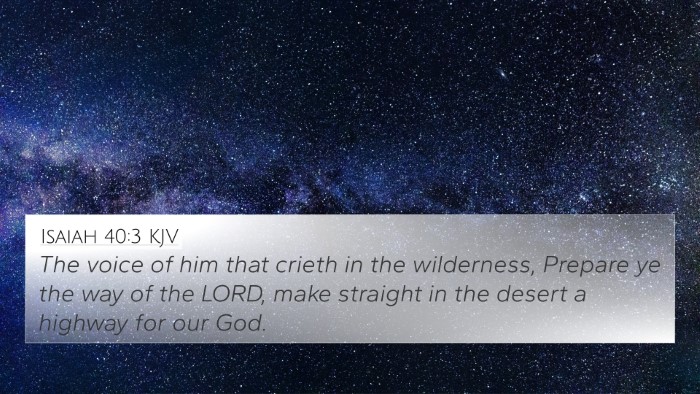Matthew 24:26 - Verse Meaning Overview
Matthew 24:26 states: "Wherefore if they shall say unto you, Behold, he is in the desert; go not forth: behold, he is in the secret chambers; believe it not." This verse is part of Jesus' discourse on the signs of His return and the end times, serving as a caution against false prophets and misleading claims about the coming of the Messiah.
Commentary Insights
-
Matthew Henry:
Henry emphasizes the necessity of discernment when faced with claims about the Messiah's return. He relates this to the nature of Christ’s second coming, noting that true manifestations of Christ will not be hidden or secretive but will be evident to all. He warns against believing in those who proclaim Christ's presence in desolate places, as these are deceptive calls.
-
Albert Barnes:
Barnes points out the importance of not being swayed by popular declarations or whispered rumors concerning Christ's return. He notes that the return of Christ will be a public event, contrasting the secretive nature of false prophets who claim to know where He is. Barnes encourages believers to remain steadfast in their faith and not to be misled by unexpected claims.
-
Adam Clarke:
Clarke addresses the historical context of deception in religious teaching. He echoes a similar theme: that the true coming of Christ will not be in isolated regions, but will be like lightning that shines from east to west, unmissable and universally noticeable. He reinforces the idea that those who believe in secret revelations about Christ’s return should exercise caution.
Connections with Other Bible Verses
- Matthew 24:5 - Warns of false Christs and prophets that will arise to deceive.
- Luke 17:23 - Similarly states that people will say Christ is here or there; don't follow them.
- 2 Thessalonians 2:9-12 - Discusses the deceptive signs and wonders performed by the lawless one.
- Mark 13:6 - Affirms that many will come in Christ’s name claiming He is the Messiah.
- John 10:27-28 - Jesus speaks of His sheep knowing His voice, indicating the need for discernment among deceptive teachings.
- Revelation 19:11-16 - Describes the triumphant and visible return of Christ, contrasting secret claims.
- 1 John 4:1 - Advises believers to test the spirits to see whether they are from God.
Thematic Connections
This verse touches on themes of discernment, deception, and the public nature of Christ's return. It forms a part of a broader warning given to believers about the last days. The emphasis is on understanding and verifying claims about divinity through scripture rather than through hearsay.
Conclusion
In summary, Matthew 24:26 serves as a crucial reminder for Christians to remain vigilant against false teachings. The combined insights from public domain commentaries underline the necessity of scriptural grounding and discernment, validating a faith that seeks truth rather than succumbing to sensationalism and deception.






